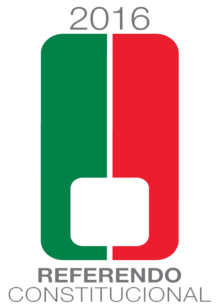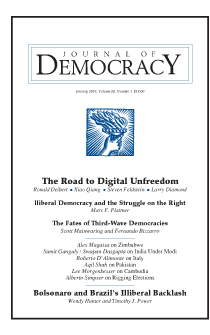 Bolivia’s Evo Morales, a former leader of a coca-growers’ union, has won three elections fairly and by large margins. He hopes to win a fourth in October. But his attempts to prolong his presidency have become increasingly high-handed, The Economist reports:
Bolivia’s Evo Morales, a former leader of a coca-growers’ union, has won three elections fairly and by large margins. He hopes to win a fourth in October. But his attempts to prolong his presidency have become increasingly high-handed, The Economist reports:
He has tightened his hold over the supposedly independent electoral commission. The government has leaned on the press, for example by withdrawing advertising from critical newspapers. Although Mr Morales might win a fair election in October, many Bolivians are worried that he will hold on to office whatever the vote. That fear has provoked a backlash, which has given heart to a divided opposition.
Morales is also cracking down on independent voices.
 Early in January, Raúl Peñaranda (right), the editor of the Brújula Digital information portal in Bolivia, reported that he was experiencing government “intimidation” after a decision by the state media outlet Entel to initiate legal actions against him based on a journalistic investigation, IFEX reports.
Early in January, Raúl Peñaranda (right), the editor of the Brújula Digital information portal in Bolivia, reported that he was experiencing government “intimidation” after a decision by the state media outlet Entel to initiate legal actions against him based on a journalistic investigation, IFEX reports.
“I wrote a news article, even relatively secondary, administrative, without much importance, we say, about the Entel company, which in its bids for the hiring of security companies fails to request that these companies have an operating license,” Peñaranda told the Knight Center.
Bolivia’s lessons for the West
Bolivia’s experience of autocratic populism holds several lessons for the West, argues Jean-Paul Faguet, Professor of the Political Economy of Development at the London School of Economics. We can open an analytical window into the future by examining the experience of Bolivia, he writes in an article for the NED’s Journal of Democracy,
- First, political party systems, even obviously successful ones, fall apart once they lose their moorings in the issues voters care about most. Stories of political collapse tend to be told in terms of wars and economic crises. These are not essential. Politics can and do collapse in peacetime when the economy is boring. What is essential is the link between parties and social cleavage. Where it is missing, parties are doomed. .
 Second, the old worker-capitalist divide of Western politics is increasingly obsolete. As manufacturing and heavy industry decline, they take with them a class of workers who strongly identify with each other against a common enemy. The changing nature of work, from a full-time, long-term commitment between employers and workers, to flexible “gigs” with few benefits or guarantees, plus increasing levels of informality, is further undermining left-right politics.
Second, the old worker-capitalist divide of Western politics is increasingly obsolete. As manufacturing and heavy industry decline, they take with them a class of workers who strongly identify with each other against a common enemy. The changing nature of work, from a full-time, long-term commitment between employers and workers, to flexible “gigs” with few benefits or guarantees, plus increasing levels of informality, is further undermining left-right politics.- Third, Bolivia illustrates how hard parties find it to change their core values and positions because they have invested so much in building reputations based on them. Both politicians and activists oppose large shifts. As society changes, parties tend to get left behind. Political-system change tends to take the form of replacement: new parties and movements arise and push aside established parties that are no longer relevant.
- Fourth, in which underlying cleavage will a new politics anchor itself? Although difficult to predict, the most compelling narratives today, in the West as in Bolivia, revolve around race, ethnicity and place. Such a new politics will play out differently in different countries depending on their histories and on how identity interacts with geography. In countries where no group is dominant, party systems may gel around identity per se….
- Fifth, any new politics of identity is bound to be far more exclusive, built on categories only some can access. This would represent a danger not just for certain countries but for democracy as an ideal. The reason is that the political compromises necessary to make democracy work are easier to find in economic space. RTWT
Bolivia’s grassroots 21f movement has staged strikes and demonstrations since the constitutional court’s ruling, The Economist adds:
Its members are mostly from the middle class, which has grown during Mr Morales’s presidency and is now the largest socio-economic group, according to Captura, a consultancy. “Evo should leave power because he lost a referendum,” says Eli Peredo, a psychologist who took part in a march on December 6th in La Paz, Bolivia’s seat of government. The institutions he now threatens “were set up under a constitution that he was instrumental in bringing to life”, she points out.







